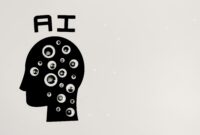In today’s rapidly evolving healthcare landscape, Business Intelligence (BI) systems are at the forefront of driving innovation. BI systems provide healthcare organizations with powerful tools to analyze data, streamline operations, and enhance patient care. By leveraging BI systems, healthcare providers can make informed decisions that lead to improved outcomes and operational efficiency. This article explores how BI systems are driving innovation in healthcare, highlighting key benefits, applications, and future trends.
The Role of BI Systems in Healthcare
BI systems play a crucial role in transforming raw data into actionable insights. They aggregate and analyze vast amounts of data from various sources, including electronic health records (EHRs), patient management systems, and financial records. By doing so, BI systems enable healthcare providers to identify trends, patterns, and anomalies that can inform decision-making.
Improving Patient Care
One of the most significant ways BI systems are driving innovation in healthcare is through improved patient care. By analyzing patient data, healthcare providers can gain insights into patient behavior, treatment effectiveness, and potential health risks. For example, BI systems can help identify patients who are at risk of readmission, allowing for timely interventions and personalized care plans.
Moreover, BI systems enable predictive analytics, which can forecast patient outcomes based on historical data. This capability allows healthcare providers to proactively address potential issues, improving overall patient outcomes and satisfaction.
Enhancing Operational Efficiency
Operational efficiency is another critical area where BI systems are making a significant impact. Healthcare organizations can use BI tools to monitor key performance indicators (KPIs), track resource utilization, and optimize workflows. For instance, BI systems can analyze staff schedules, patient wait times, and bed occupancy rates to ensure that resources are allocated efficiently.
Furthermore, BI systems can assist in financial management by providing insights into revenue cycles, billing processes, and cost control. By identifying areas of financial waste or inefficiency, healthcare organizations can implement corrective measures to enhance their financial health.
Applications of BI Systems in Healthcare
Population Health Management
Population health management is an essential aspect of modern healthcare, and BI systems play a pivotal role in this domain. By analyzing data from diverse populations, BI systems can identify health trends and disparities. This information is invaluable for developing targeted public health initiatives, preventive care programs, and community outreach efforts.
Clinical Decision Support
BI systems are also integral to clinical decision support. By providing real-time access to patient data and clinical guidelines, BI tools assist healthcare providers in making evidence-based decisions. This not only enhances the quality of care but also reduces the likelihood of medical errors.
Regulatory Compliance
Compliance with healthcare regulations is a complex and ongoing challenge. BI systems can help healthcare organizations stay compliant by monitoring regulatory requirements and ensuring that data is accurate and up-to-date. This reduces the risk of penalties and enhances the organization’s reputation.
Future Trends in BI Systems for Healthcare
Artificial Intelligence and Machine Learning
The integration of artificial intelligence (AI) and machine learning (ML) with BI systems is poised to revolutionize healthcare. AI and ML algorithms can analyze large datasets with unprecedented speed and accuracy, uncovering insights that were previously unattainable. This will lead to more precise diagnoses, personalized treatment plans, and improved patient outcomes.
Real-Time Data Analytics
As healthcare becomes increasingly data-driven, the demand for real-time data analytics is growing. BI systems that can provide instant access to data will enable healthcare providers to make timely decisions, enhancing patient care and operational efficiency.
Integration with IoT Devices
The Internet of Things (IoT) is rapidly gaining traction in healthcare, with devices such as wearable sensors and remote monitoring tools becoming commonplace. BI systems that can integrate with IoT devices will provide a more comprehensive view of patient health, facilitating proactive care and early intervention.
Conclusion
In conclusion, BI systems are driving innovation in healthcare by providing valuable insights that enhance patient care, operational efficiency, and regulatory compliance. As technology continues to advance, the integration of AI, real-time data analytics, and IoT devices will further amplify the impact of BI systems. Healthcare organizations that embrace these tools will be well-positioned to navigate the challenges of the modern healthcare landscape and deliver superior patient outcomes.
FAQs
What is a Business Intelligence (BI) system?
A Business Intelligence (BI) system is a technology-driven process that collects, integrates, analyzes, and presents business data. In healthcare, BI systems are used to transform raw data into actionable insights that can improve patient care and operational efficiency.
How do BI systems improve patient care?
BI systems improve patient care by analyzing patient data to identify trends, risks, and treatment effectiveness. This allows healthcare providers to make informed decisions, personalize care plans, and proactively address potential health issues.
What are some applications of BI systems in healthcare?
BI systems are used in various healthcare applications, including population health management, clinical decision support, and regulatory compliance. They help healthcare organizations analyze data to improve patient outcomes, streamline operations, and ensure compliance with regulations.
What future trends are expected in BI systems for healthcare?
Future trends in BI systems for healthcare include the integration of artificial intelligence and machine learning, real-time data analytics, and the incorporation of IoT devices. These advancements will enhance the ability of BI systems to provide precise insights and improve patient care.
By understanding how BI systems are driving innovation in healthcare, organizations can harness the power of data to make informed decisions, improve patient care, and achieve operational excellence.



